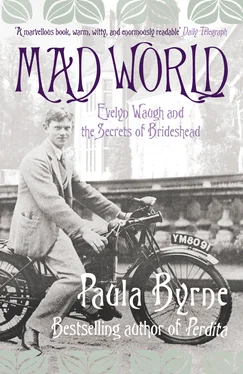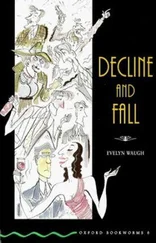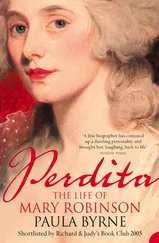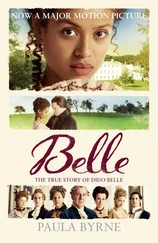1 ...6 7 8 10 11 12 ...26 He was drawn to charming, charismatic boys and was prone to hero-worship. But he despised boys who hero-worshipped him, such as a certain Dudley Carew, who appeared to have an insatiable taste for vulgarity, saying things like ‘there’s a delightful squalor about Shoreham’. Crease said of Evelyn: ‘You want a friend who is a thorn in the flesh, not an echo.’ Evelyn recognised the wisdom of the observation.
The closest he came to real friendship at Lancing was with Tom Driberg – later chairman of the Labour Party, and Hugh Molson – later talked about as a possible leader of the Conservative Party. Molson was nicknamed ‘Preters’ on account of the fact that when asked if he was interested in politics, he would reply ‘preternaturally so’. Flamboyant, highly intelligent and sophisticated, he dazzled with his ‘superb pomposity of manner and vocabulary’. Molson had, Evelyn noted in his diary, ‘the true aristocrat’s capacity of being perfectly at home in anyone’s company’. He was perhaps the first of the Sebastian type.
In the upper fifth, Evelyn and his friends formed a debating society called the Dilettanti, divided into three streams. Molson ran the Politics, a boy called Roger Fulford the Literary and Waugh the Arts. The society lasted a year, ‘during which time almost every leisure hour was spent in lecturing and heckling one another, in debates, in committee-meetings and in elections’.
As Evelyn’s confidence increased, he showed his sadistic side. One boy’s life was rendered particularly miserable by his cruel tauntings. Appeals for temperance were met with stony refusal. Evelyn noted in his journal that ‘in all these nasty manoeuvres there lay hidden the fear that I myself might at any moment fall from favour and become, as I had been in my first year, the object of contempt’.
Looking back, the mature Evelyn Waugh was appalled by what he read in his own early journals. In a moving letter to his son Auberon, who was unhappy at boarding school, Evelyn wrote that he had read through his own Lancing diaries in order to try to understand his son better. Instead, Evelyn was horrified by the priggish, selfish boy that he encountered amongst the journal’s pages. ‘Most adolescent diaries are naïve, trite and pretentious: mine lamentably so.’ But it was more than this. With his characteristic honesty and self-deprecation, he saw that he ‘was conceited, heartless and cautiously malevolent’:
The damning evidence is there, in sentence after sentence on page after page, of consistent caddishness. I feel no identity with the boy who wrote it. I believe I was a warm-hearted child. I know that as a man my affections, though narrow, are strong and constant. The adolescent who reveals himself in these pages seems not cold but quite lacking in sincerity.
The war had left its mark on Evelyn’s generation. Cynical and clever, he was determined to oppose the ‘imperialist trash about discipline and the capacity for leading’ that was the public school ethos. He was a rebellious boy, though his transgressions seem light by today’s standards (giving in homework written in blank verse to catch out his master, for example). Evelyn and his cronies were barred from senior school positions of authority. He gained a reputation as a subversive and was the leader of a group known as the ‘Bolshies’. They vented their spleen on those they felt were absurd or inferior. Science masters were treated with contempt and their laboratories were sabotaged by means of minor explosions generated by Bunsen burners.
The Bolshies’ contempt was greatest for the school’s Officer Training Corps (OTC), to which, like all the boys, they had to belong. Scornful of the school’s military ethos, they devised ‘rags’ – practical jokes – to make the OTC appear absurd. They would march in the platoon with one boot polished and the other muddy, or deliberately drop rifles or turn right instead of left. They were merely expressing what countless other schoolboys around the country felt: a strong reaction against militarism and what they considered to be the huge waste of the casualties of the war.
It was becoming fashionable not to be patriotic. Evelyn noted in his memoir that while the Bolshies made their protests felt through minor delinquencies, other schools expressed their objections to militarism differently: ‘At Eton there was a platoon which paraded in horn-rimmed spectacles and numbered off: ‘‘ten, Knave, Queen, King.’’ We did nothing as stylish as this, but we outraged local tradition.’ The Bolshies’ final act of defiance against the OTC was designed to show utter contempt for all that the corps held dear. Evelyn’s House (Heads) was well known for its incompetence in drill. His plan was to surprise the school by winning the Platoon Shield but then to have no part in the all-important ceremonial passing over of the shield. The scheme, however, failed as Heads was placed third.
Secretly, he longed for recognition. In Charles Ryder’s Schooldays , Charles is furious at being passed over for a position of authority in the Settle, just as Evelyn was at Lancing. His House tutor, Mr Woodard, cleverly brought him into conformity. He gave a choice: Evelyn could accept the House captaincy or he could leave. ‘I know that you often say and write a lot which you don’t really believe,’ said Woodard shrewdly. ‘Now what do you really think about it?’ Needless to say, Waugh chose the captaincy ‘and for the next two terms was segregated from my former cronies’. In looking back and assessing his motives, Evelyn concluded that it was not authority that he craved but ‘school offices I coveted, such as the editorship of the magazine and presidency of the debating society, which were held by House captains only’.
He knew that he was too much the individualist. But in his diary he showed self-disgust with the way that he had capitulated to authority: ‘My position is really impossible – a House-captain as a bribe to make me sober.’ It was ‘limited Bolshevism’ for him from now on. In reality, he felt lonely and dispirited. He was neither an insider nor outsider. Above all, he had not found the golden circle of friends that he craved.
Perhaps his diminutive height and his lack of conventional beauty contributed to his sexual insecurity. His brother Alec had had at least two passionate affairs at Sherborne, and had made his name through his illicit romances, but the most romantic of Evelyn’s encounters were late night solitary walks down to the sea with another prefect. The relationship was entirely innocent, but Arthur Waugh found out about it. Fearing a repetition of Alec’s disgrace, he wrote a furious letter, which Evelyn found rather bewildering, since he wasn’t in full possession of the facts about his brother. Still, at least there was uncharacteristic strength in his father’s outburst, with Evelyn commenting: ‘I am rather glad that he has taken a strong line against something at last.’
Evelyn’s final year at Lancing was more productive than those that had gone before, though not necessarily happier. He enjoyed the privileges of his seniority. He had his own ‘pitt’ or study, which he decorated in a tasteful blue – blue curtains, blue cushions on the window seat, blue upholstery for his desk. Arthur Waugh’s brass candlesticks stood on the desk and Medici prints hung on the walls. Evelyn worked hard for his scholarship to Oxford. ‘I must write prose or burst,’ he told his diary. He also started writing a novel: ‘the study of a man with two characters, by his brother’. He was becoming aware of ‘a detached, critical Hyde, who intruded his presence more and more often on the conventional, intolerant, subhuman, wholly respectable Dr Jekyll’. During his final months he edited and contributed to The Lancing Magazine , won the poetry prize and the Scarlyn Literature Prize, composed poetry and wrote a very successful three-act play, which was performed to the whole school. He was made president of the debating society, not to mention junior sacristan in chapel.
Читать дальше












